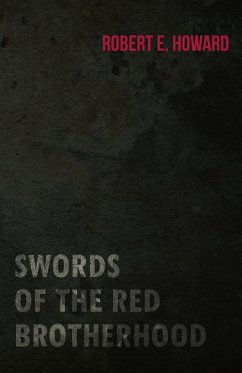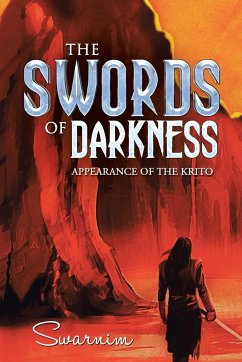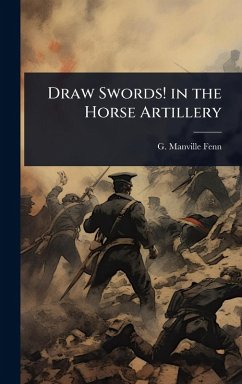
Swords of the Red Brotherhood
Versandkostenfrei!
Versandfertig in 1-2 Wochen
17,99 €
inkl. MwSt.
Weitere Ausgaben:

PAYBACK Punkte
9 °P sammeln!
This early work by Robert E. Howard was originally published in the 20th century and we are now republishing it with a brand new introductory biography. 'Swords of the Red Brotherhood' is a story in the Black Vulmea series about an Irish pirate sailing the Caribbean. Robert Ervin Howard was born in Peaster, Texas in 1906. During his youth, his family moved between a variety of Texan boomtowns, and Howard - a bookish and somewhat introverted child - was steeped in the violent myths and legends of the Old South. At fifteen Howard began to read the pulp magazines of the day, and to write more ser...
This early work by Robert E. Howard was originally published in the 20th century and we are now republishing it with a brand new introductory biography. 'Swords of the Red Brotherhood' is a story in the Black Vulmea series about an Irish pirate sailing the Caribbean. Robert Ervin Howard was born in Peaster, Texas in 1906. During his youth, his family moved between a variety of Texan boomtowns, and Howard - a bookish and somewhat introverted child - was steeped in the violent myths and legends of the Old South. At fifteen Howard began to read the pulp magazines of the day, and to write more seriously. The December 1922 issue of his high school newspaper featured two of his stories, 'Golden Hope Christmas' and 'West is West'. In 1924 he sold his first piece - a short caveman tale titled 'Spear and Fang' - for $16 to the not-yet-famous Weird Tales magazine. Howard's most famous character, Conan the Cimmerian, was a barbarian-turned-King during the Hyborian Age, a mythical period of some 12,000 years ago. Conan featured in seventeen Weird Tales stories between 1933 and 1936 which is why Howard is now regarded as having spawned the 'sword and sorcery' genre. The Conan stories have since been adapted many times, most famously in the series of films starring Arnold Schwarzenegger.














